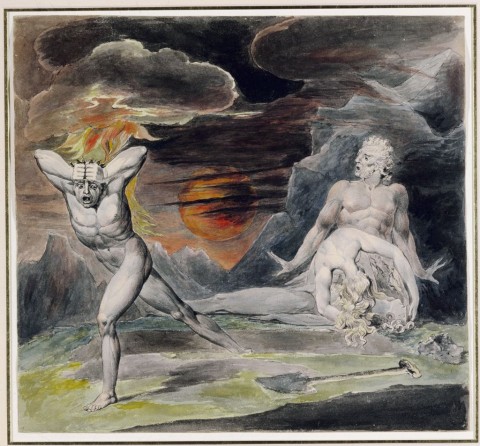How I learned to love the “vengeful Old Testament God”
My class had struggled with the psalmists calling on God to kick in the teeth of their opponents. Then we got to the 94th Psalm.

For more than a month now, I’ve been leading the adult education class of my wee kirk in a long, careful reading through the Psalms, those ancient spiritual songs of the Hebrew people. Though we typically read one each week in our liturgy, it’s rare that we stop and savor them, and it has been a remarkably interesting journey.
Part of the reason it has been so fascinating is the wild shifts in voice and tonality that comes from this millennia-spanning collection of sacred lyrics. The book of Psalms speaks from so many different contexts. You’ve got personal anguish. You’ve got pride in the power of the monarch. You’ve got pride in the inherent blessedness of a nation. You’ve got wisdom. You’ve got woe. You’ve got celebrations of creation and wedding marches.
And intermixed in there, you’ve got a whole bunch of songs calling on God to kick in the teeth of those who oppose us. My class has particularly struggled with these, as have I.
Generally, the spiritual read we get from those texts is . . . nothing. They feel more than a little brutish, more than a little petty, pulling the Creator of the Universe down to the level of our endless human squabbles. It’s easy, as one reads, to simply attribute such things to what is often described as the “Vengeful Old Testament God,” which is to be distinguished from what theologians call the “Sparklefairy Wuv New Testament God.”
I’ve never been comfortable with this distinction. First, it diminishes Judaism, whitewashing the fundamental interconnection between the Torah, Prophets, and Writings and the person of Jesus. This is just not kosher, so to speak. Second, it assumes the New Testament contains within it no smiting or wrath, which just ain’t true. Spend 30 seconds in the book of Revelation, and you just can’t miss that. And if we’re honest about the parables of Jesus, well, they ain’t exactly My Little Pony videos.
Where the Psalms start talking about personal or sociopolitical violence, it has always felt, to be honest, more like projection on the part of various psalmists, as personal ambition or national pride has infected their view of the I Am That I Am.
This last Sunday, we went to wrath again, as we read the 94th Psalm. It starts right in with the vengeance. “O Lord, you God of vengeance,” it begins, and we all rolled our eyes. But then we read on. It was . . . different.
Meaning, for the first time in a psalm mostly about smiting, I was right there with the psalmist. Sure, the 94th Psalm calls out for God to be vengeful, to wipe the wicked from the earth, but there were two key distinctives.
First, this is a psalm that rises from a more universal framework. It’s not calling for God to be the god of a particular nation. The God who is invoked is not the judge of just one people, but of all the earth and all nations. All of the psalms that sing most brightly seem to share this characteristic, as the earth itself rises to bear witness to the One who is greater than any person or nation.
Second, the psalm is expansive in its understanding of justice. Sure, the psalmist wants things to turn out well for them. But their interest goes deeper than transactional selfishness. They care about the damage done by corrupt, self-interested leaders, and the impact they have on the most vulnerable in their culture. What matters is that justice be done . . . not simply justice for us or justice for me, but justice for all, with a particular focus on the poor and the oppressed.
It’s the cry of the powerless for some measure of balance, for those who lie and manipulate and trample over others to be held to account for their deeds.
And for once, that call on God to not let that stand felt . . . good. It felt good.
Originally posted at Beloved Spear





